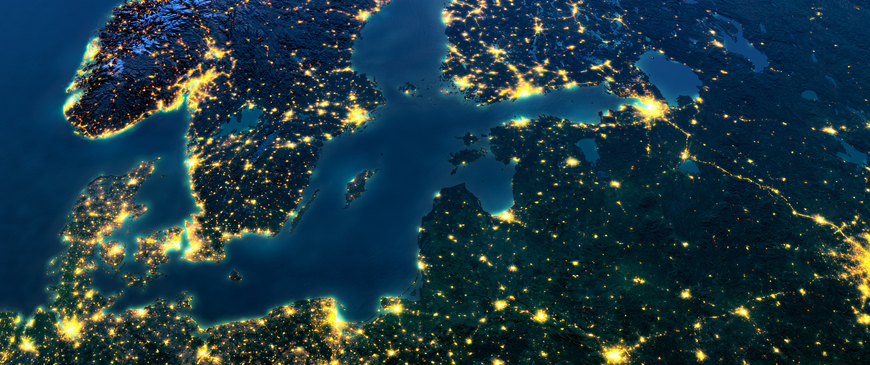
Talking Baltics - Interview with Ian Bond
We posed five questions to the director of foreign policy at the Centre for European Reform and a former British ambassador to Latvia to get his thoughts on the Baltic Sea Region.
Q: What is the single most significant policy issue faced by the states of the Baltic Sea Region today and why?
A: The most significant policy issue is how to ensure security in the face of an assertive and sometimes reckless Russia - a situation that is likely to get worse as potential successors to Putin start to jockey for position over the coming decade.
Q: At what moment(s) if any do you think Britain played a decisive role in the history of Baltic Sea Region?
A: Britain was a significant regional actor in the Napoleonic period, because of the importance of naval supplies from the region. It played a decisive role in the Latvian and Estonian wars of independence after World War 1 - it's quite possible that those states would have been reabsorbed into Bolshevik Russia (as Belarus, Ukraine and Georgia were) without British and especially Royal Navy support. But the Baltic region became less central to UK thinking during the Cold War and afterwards, notwithstanding the UK's support for the accession of countries in the region to the EU (and to a lesser extent NATO - the UK was concerned about how in practice the Baltic States in particular could be defended).
Q: Will the UK be more or less important to the prosperity and security of the Baltic Sea Region in 2030? Why?
A: The UK may still be as important to the security of the Baltic Sea region as it is now - though that depends to some extent on the outcome of the UK's integrated defence and security review. I worry that it may look too far beyond the physical horizon, and focus too much on how the UK can play a role in the Asia-Pacific region, and not enough on security threats close to home, including in the Baltic region. I suspect that the UK will be less important to the prosperity of the region - having left the EU, the UK is now likely to be a less attractive destination for emigrants from the EU member-states around the Baltic, and trade between the UK and the region will be more complicated.
Q: Are commitments to the European Union in the Baltic Sea Region likely to clash with those to NATO, and if so how?
A: I would be surprised if the EU and NATO commitments of countries in the Baltic region clashed. One of the interesting phenomena of the last decade or so has been the extent to which non-NATO states Finland and Sweden have become quasi-members of the alliance - taking part in many NATO activities, even though they do not benefit from the Article 5 guarantee. That in turn has helped EU-NATO co-operation in the region, especially when it comes to tackling non-military threats from Russia, such as disinformation. Indeed, Finland hosts the European Centre of Excellence for Countering Hybrid Threats - a body under the auspices of both the EU and NATO.
Q: What major opportunities are there for Britain in the Baltic Sea Region?
A: There is an opportunity for the UK to build a community of friends in the region, countries that take security and defence seriously, are atlanticist in their outlook, are pro-trade and basically share much of the UK's perspective on European security. There are already some building blocks there - the Joint Expeditionary Force, for example, the UK-led force in which Denmark, Sweden, Finland, Estonia, Latvia, Lithuania, Norway and the Netherlands take part. When David Cameron was prime minister, there were regular 'Northern Future Forum' summits with the Nordic and Baltic countries - it would be good to see that format revived. Since Brexit, British ministers have in my view been overly focused on foreign policy co-operation with France and Germany, as well as with partners farther afield such as the US and Australia. They should not neglect the Baltic Sea region.
